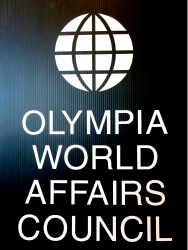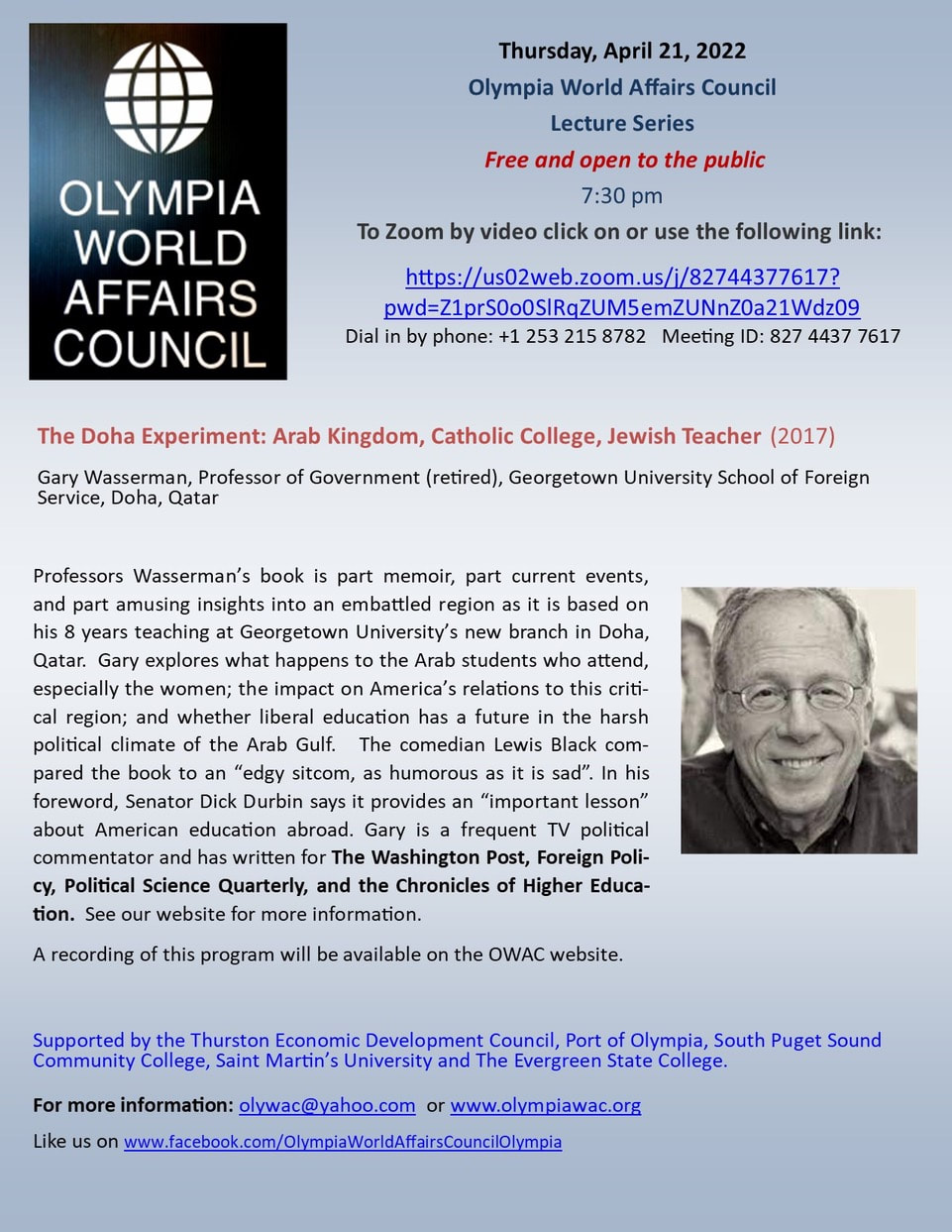Lecture Program April 21st via Zoom 7:30 pm. To join this meeting, click this link: https://us02web.zoom.us/j/82744377617?pwd=Z1prS0o0SlRqZUM5emZUNnZ0a21Wdz09
Gary Wasserman’s "The Doha Experiment: Arab Kingdom, Catholic College, Jewish Teacher." (2017)
Part memoir, part current events, and part amusing insights into an embattled region, it is based on his 8 years teaching at Georgetown University’s new branch in Doha, Qatar. Gary explores what happens to the Arab students who attend, especially the women; the impact on America’s relations to this critical region; and whether liberal education has a future in the harsh political climate of the Arab Gulf. The comedian Lewis Black compared the book to an “edgy sitcom, as humorous as it is sad”. In his foreword, Senator Dick Durbin says it provides an “important lesson” about American education abroad.
Author's Bio
Gary Wasserman was a Professor of Government at Georgetown University in Qatar for eight years. He taught courses in American Government, International Relations, Media and Foreign Policy, and Interest Groups and Lobbies. He has written for The Washington Post, Foreign Policy, Political Science Quarterly, and The Chronicle of Higher Education. He is a frequent TV political commentator, worked as a Washington communications consultant, and taught at Johns Hopkins SAIS in China, at Columbia University and Medgar Evers College. His book, The Basics of American Politics, published for over 45 years, has become the standard brief American government text, and is coming out next year in its 17th edition.
Here is how Gary Wasserman describes his book:
"...Teaching at Georgetown University’s new Foreign Service School in Doha, Qatar didn’t get me killed, kidnapped or even treated badly. Instead I became part of a significant, little understood movement of American higher education into the embattled nations of the Middle East. By accident I dropped onto the frontlines of a clash of civilizations; or more accurately a confusion of cultures where liberal universities confront fundamentalist believers. At stake: tomorrows’ leaders of this violent region.
Unlike much of today’s reporting from the Middle East I did not come away with an alarming blood-soaked narrative. Instead there are simpler stories of people, and the conclusions I drew. The intimacy of the classroom allows candid exchanges with Muslim youth struggling to find their place in different worlds.
Throughout is my own journey, with the experiences and changes that I went through, offering insights and humor, irony and hope."

